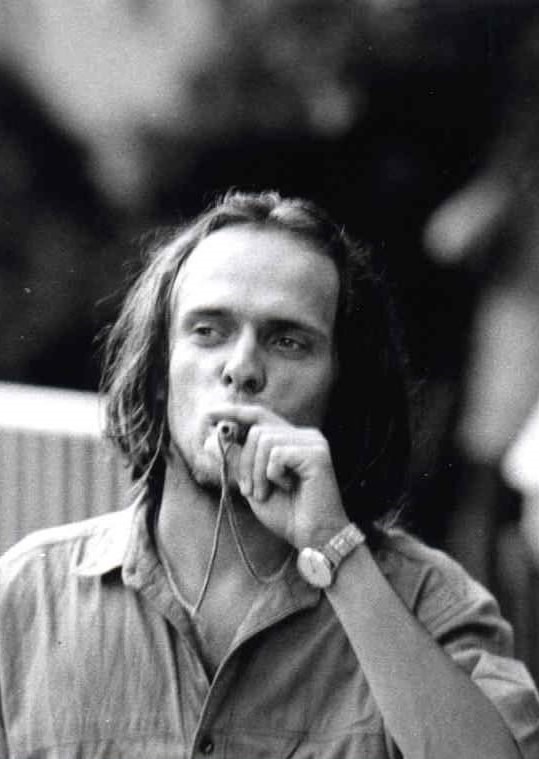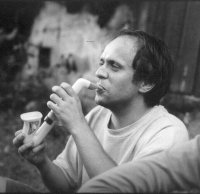The goal was to make college and stay abroad for the first conference

Stáhnout obrázek
René Levínský was born on 6 August 1970 in Hradec Králové to Eva and Miroslav Levínský. In 1984-1988 he studied at the J. K. Tyl Grammar School in Hradec Králové. He participated in several concerts of local underground bands. In the autumn of 1988 he entered the Faculty of Nuclear and Physical Engineering at the Czech Technical University in Prague. In October of the same year, he founded the theatre group Nejhodnější medvídci with friends, and soon began writing his first plays. During the Velvet Revolution he was involved in the strike committee at the faculty. In 1993 he successfully completed his studies at the Faculty of Nuclear and Physical Engineering. In September of the same year, he started his PhD at the CERGE of Charles University. He defended his dissertation in 2000. In July 2000 he moved to Germany, where he lectured at the Albert Ludwig University in Freiburg. Since 2006 he has worked in the Department of Economics of Strategic Relations at the Max Planck Institute in Jena. In 2016 he returned to the Czech Republic with his family, where he spent some time in the theatre, after which he worked as Executive Director of the Centre for Modelling Biological and Social Processes (BISOP). In 2023 he lived in Prague.

